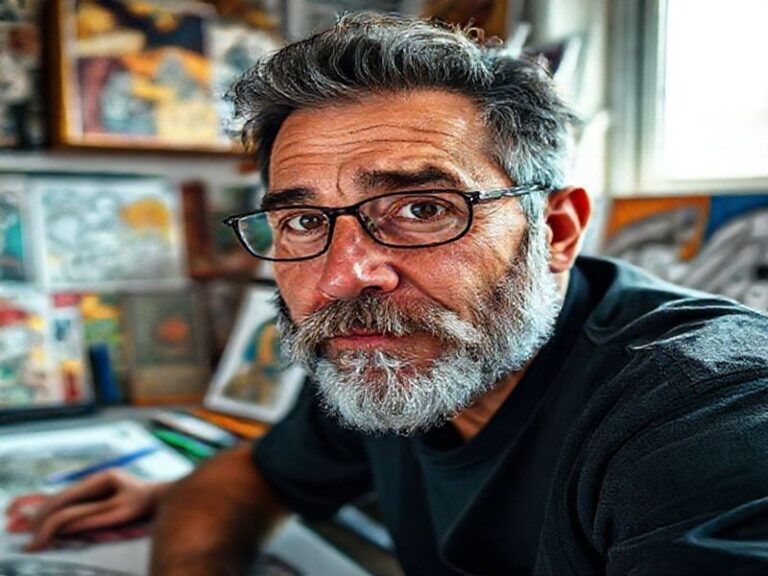Chase Sexton’s World Tour: How a Dirt-Bike Kid from Illinois Became an Accidental Geopolitical Asset
Chase Sexton and the Globalization of Dirt: How a Kid from La Moille, Illinois Accidentally Became a Soft-Power Asset
By the time the Red Bull-branded cargo jet touched down in Riyadh last February, Chase Sexton still couldn’t pronounce “riyal,” but the Saudi General Entertainment Authority had already decided he was worth every petrodollar. The 24-year-old AMA Supercross champion—raised on a corn-and-soy grid so flat it makes Holland look topographical—was flown in as “cultural outreach,” which is what you call stunt work when the invoice runs through a sovereign wealth fund. He brought his 450SX Honda, a mechanic, and a Midwestern politeness that translates poorly into a region where pleasantries usually involve three rounds of coffee and an interrogation about family lineage. They gave him a palace suite and a personal falconer. He asked if the bird could sign a visor.
In less enlightened times, a dirt-bike prodigy from La Moille (population: humans slightly outnumbered by hogs) would have peaked at the county fairgrounds. Today, the same kid lands on five continents before breakfast, courtesy of energy-drink diplomacy, streaming rights, and the curious fact that motorcycles, unlike democracy, require no translation. Sexton’s Instagram—equal parts helmet-cam carnage and aw-shucks cornfield nostalgia—now reaches 1.4 million followers, a number roughly equivalent to the population of Estonia, only with better teeth. When he wheelied past the Jeddah corniche, the hashtag #ChaseInSaudi trended higher than the local stock exchange, proving that youth, noise, and suspension travel can outperform a thousand public-relations white papers.
The French, never ones to miss an existential angle, invited him to Lyon for a “motocross versus parkour” exhibition, as if the fate of Western civilization hinged on whether backflips look cooler with or without an engine. Sexton cleared the Rhône in fourth gear; the parkour artists sulked off to smoke Gauloises and contemplate mortality. Meanwhile, in Jakarta, GoJek drivers huddled around phones to watch him scrub a triple at Daytona, parsing frame-by-frame for tips on surviving their own daily traffic Grand Prix. Somewhere in the data centers of Alphabet, an algorithm quietly logged that Indonesian engagement spikes whenever Chase’s GoPro catches a crash. Capitalism, like gravity, never sleeps.
Back home, the U.S. Department of Commerce still classifies Supercross as a “niche motorsport,” which is bureaucratese for “we haven’t figured out how to tax the merch yet.” But the Bureau of Industry and Security keeps a discreet eye on suspension technology; those Showa A-Kit forks contain alloys the Pentagon prefers not to see reverse-engineered in certain export-controlled nations. Thus every time Sexton’s mechanic whispers “clicker adjustment,” an export-control lawyer somewhere twitches like a meth-addled prairie dog. Soft power, hard springs.
The wider world has noticed. Australian mining magnates now sponsor junior SX camps in Perth, hoping to groom the next Sexton the way Qatari sheikhs incubate football academies in the desert. Brazilian favela kids recut his onboard laps to baile-funk beats, turning throttle blips into percussive rebellion. Even the Germans—who traditionally view fun with suspicion—have dispatched industrial trainees to observe Honda’s pit-box efficiency, proving that lean manufacturing can be reverse-imported from a kid who once stacked hay bales for pocket money.
And yet, for all the geopolitical ornamentation, the essence remains stubbornly simple: a human body threading 230 pounds of aluminum and adrenaline through 40-foot arcs of manicured clay while praying the ligaments hold. The rest—royal falconers, state censors, streaming royalties—are just the barnacles of modern spectacle. Sexton himself seems vaguely amused that nations now negotiate over his suspension settings. After winning the 2023 SuperMotocross title, he told reporters, “I just like going fast,” a statement so devoid of doctrine it could be the new Geneva Convention if only anyone believed it.
As the 2024 season kicks off, expect further diplomatic incidents disguised as sports: Tokyo hosting a round on reclaimed Olympic land, Buenos Aires courting him to jump over the Casa Rosada in a transparent bid to distract from 120% inflation. Somewhere, a U.N. subcommittee is drafting guidelines for “two-stroke non-proliferation.” And in La Moille, the grain silos still stand, indifferent to glory, reminding us that every global icon starts by getting dirty in somebody’s backyard.







